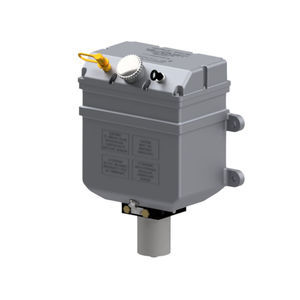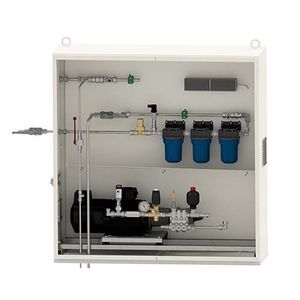
- Hydraulics - Pneumatics
- Pump
- Oil pumping station
- GROENEVELD-BEKA

- Products
- Catalogs
- News & Trends
- Exhibitions
Oil pumping station

Add to favorites
Compare this product
Characteristics
- Applications
- oil
Description
The BEKA® Oil pump station is a customized automatic lubrication system, completely adapted to the requirements of the machine. The oil pump station can be set-up as a dual-line lubrication system or as an extensive progressive sectional lubrication system.
Because of the customization of the system, an oil pump station is commonly used for larger machines or to lubricate all machines in a plant which need oil lubrication.
System overview and working principle An oil pump station, whether it’s being used as a dual-line or progressive system, consists of a few standard components:
• A gear pump unit
• A control unit
• An oil sump unit
• One or several monitoring devices
• Several metering devices
Oil pump station used as a dual-line system
When used in a dual-line system, the oil is pumped to the distribution blocks via a double main line network. The metering units supply the exact right amount of grease to each of the lubrication points.
The benefit of the dual-line system is that the system can deal with very long distances.
Oil pump station used as a progressive sectional system
In a progressive sectional system, the lubrication system is divided into several sections. In each section multiple distributors are collected. Each section is separately connected to a main line and can be lubricated individually.
Each section is being operated by the control unit. The main dividers are supplied with oil by a gear pump which pumps the oil from a separate oil reservoir.
A progressive sectional system is most commonly used when different machines are connected, but not always working at the same time.
Catalogs
No catalogs are available for this product.
See all of GROENEVELD-BEKA‘s catalogs*Prices are pre-tax. They exclude delivery charges and customs duties and do not include additional charges for installation or activation options. Prices are indicative only and may vary by country, with changes to the cost of raw materials and exchange rates.




